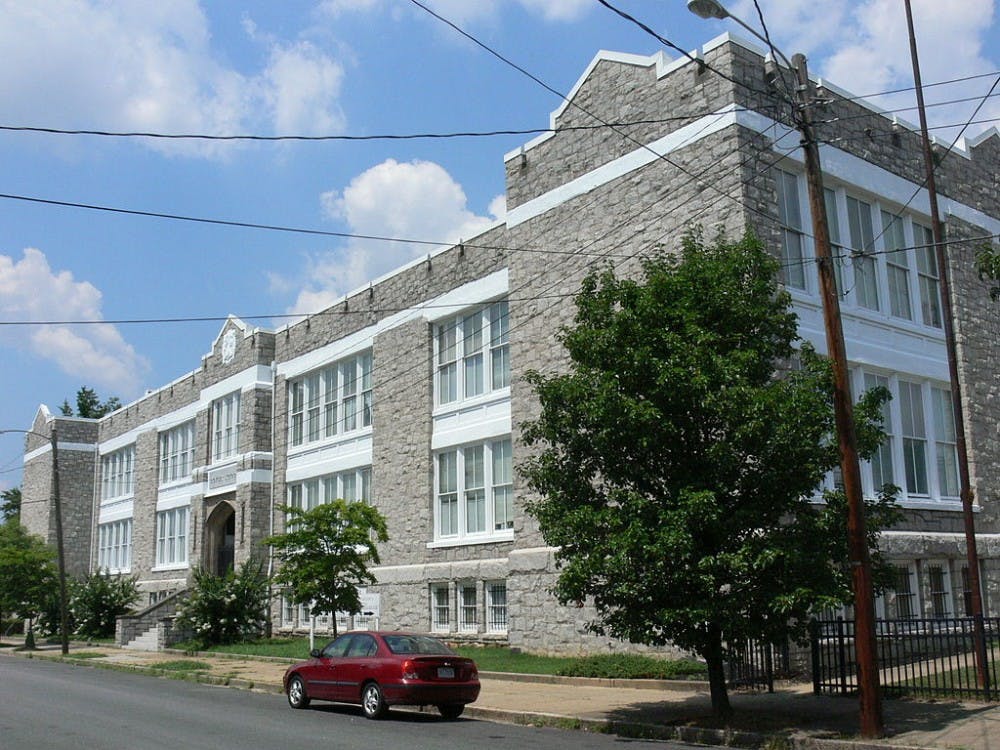Teach For America (TFA), a national program that trains high-achieving college graduates to teach at high-poverty schools for two years, has been in the works for Richmond since 2012, but will no longer be coming to Richmond Public Schools for the 2015-2016 school year.
“Sadly, given the demands for teaching corps members by Teach For America’s current partners, as well as our recruitment projections, Teach For America’s national leadership has determined that it would not be responsible or feasible for us to continue to pursue expanding into new sites, including Richmond, over the next two to three years,” Eva Colen, the managing director of community engagement and new site development for TFA, wrote in an email.
Though the organization had over 44,000 applicants nationally, TFA recruitment was down 12 percent this year, according to a source from its regional offices.
Richmond Public Schools typically hire around 300 teachers each year, so the 30 Teach For America corps members they hoped to bring in would have made up approximately ten percent of the new teachers, according to school board member Kristen Larson.
“The unfortunate reality is that in school year 2015-2016, we will likely be falling short of our current partners’ demands by around 25 percent,” Colen wrote. “Along with other teacher preparation programs, we are experiencing a difficult recruitment environment with multiple contributing factors, including an improving economy that has led prospects to turn away from public service and toward fields they perceive as more financially stable.”
The city of Richmond was poised to welcome the TFA program, which places top college graduates in high poverty school districts to teach for two years, during the 2015-2016 school year. Around 30 TFA teachers were expected to be placed in middle and high schools, particularly in high-need subject areas like math and English as a Second Language (ESL).
The process started in 2012 when Colen, a Virginia native and long-time TFA member, began working on the idea of expanding the organization to Richmond. She personally lobbied for the Teach For America Act of 2013 that allowed for participants of TFA to receive a two-year provisional teaching license with the opportunity to extend the license to a third year. The Richmond School Board voted 5-2 in favor of bringing Teach For America to the city next school year. After a long and heated debate, Kristen Larson, a chairwoman on the board, voted for TFA to help the city’s historical teacher shortage.
Richmond Public Schools started the 2014-2015 school year with around 60 open teaching positions, according to Larson.
Tichi Pinkney Eppes, ninth district school board member, was disappointed with the decision.
“RPS has been an urban education environment. It’s not real easy to come into the inner city and teach in addition to some of the challenges we face,” Eppes said. “[Teach For America] specifically trains the individuals to do so. We’re trying to build a better school district.”
The city of Richmond is dealing with many of the problems associated with urban education. The Virginia Department of Education reported that 517 dropouts out of 6,873 dropouts statewide were from Richmond City in the 2012-2013 school year. Because of these circumstances, the community was in a prime position for a change like TFA.
Teach For America was founded 26 years ago after Princeton University student Wendy Kopp proposed the idea in her undergraduate thesis. Since then, more than 37,000 people have participated in the program, which attempts to “eliminate educational inequity,” according to its website. Colen said more than 11,000 of those people are still classroom teachers and 80 percent of former Teach For America corps members still identify education as their field of work. Corps members are trained during five week “institutes” in the summer and placed in high-poverty schools to teach in the fall. The program has a competitive application process, with only 15 percent of applicants accepted as corps members in 2014.
Enjoy what you're reading?
Signup for our newsletter
This need for qualified teachers is apparent in the Richmond Public School system, which serves about 24,000 students. In the 2014-2015 Summary of Accountability Results released by the Virginia Department of Education, four percent of core academic classes in Richmond’s high poverty schools were taught by teachers teaching outside of their area of endorsement. This is double the state's average of two percent.
Colen said Richmond would continue to be a “priority area” for TFA and they hoped to reconnect with RPS once their recruitment is higher than its current demand. RPS has been notified and donations have been returned to donors at this time.
Dr. Jacqueline McDonnough, associate professor at the VCU School of Education, was pleased when she discovered TFA would not be in Richmond next year, but she worried about the possibility that the organization would return.
“They’re getting more and more information at how damaging it is to schools with teachers who are cycling in and out with two years,” McDonnough said. “I would like to see more energy into keeping the teachers we have in our classrooms currently. They’re not given proper support.”
UR is one of the top providers of Teach For America corps members from small schools, ranked third in the nation. According to a 2014 TFA press release, 19 UR graduates were accepted in the 25th corps and began teaching in fall 2014.
Contact reporter Caroline Utz at caroline.utz@richmond.edu
Support independent student media
You can make a tax-deductible donation by clicking the button below, which takes you to our secure PayPal account. The page is set up to receive contributions in whatever amount you designate. We look forward to using the money we raise to further our mission of providing honest and accurate information to students, faculty, staff, alumni and others in the general public.
Donate Now



